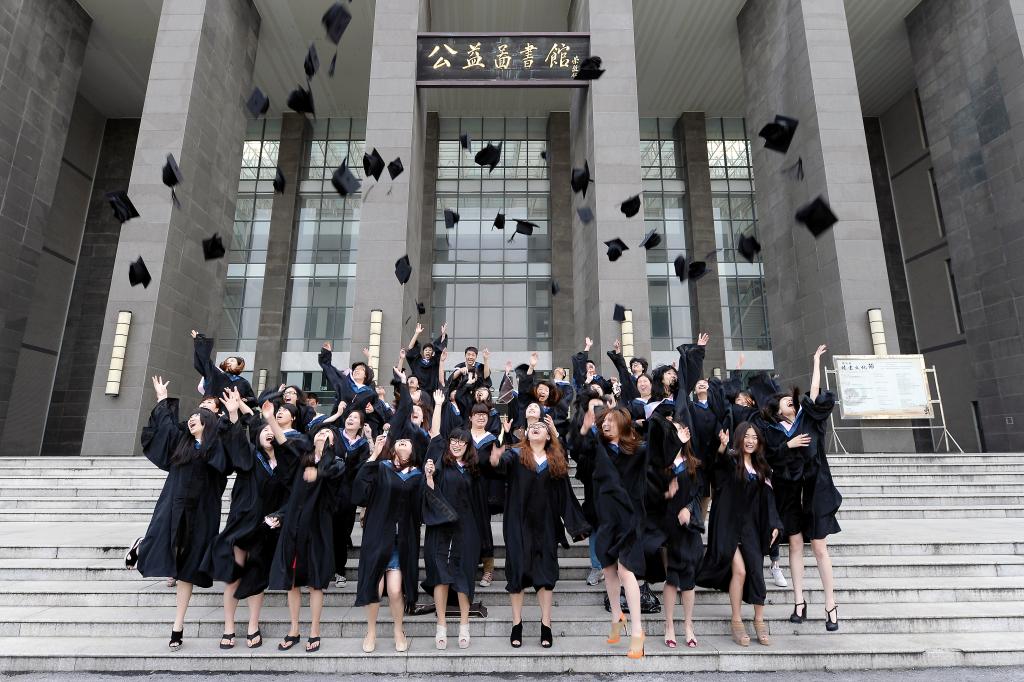
The discipline of “Food Science and Engineering” of Jiangnan University, founded in 1947, ranked first in the national first-level discipline assessment made by the Ministry of Education in 2008 and 2012, approved as national first-level key discipline.
As early as 1964, this discipline launched programs for international students in China, which is of distinctive features and global vision, nurturing students from the world including over 20 countries along “the Silk Road Economic Belt” and “the 21st-century Maritime Silk Road”. In this context, the university initiated and founded the “Belt and Road” University Alliance for Food Science and Education (the Alliance), with its members from 26 countries and 45 food colleges and universities.
Orientation and goal of international education
The discipline is oriented to “pioneering the frontiers of food science and serving the development of the global industry”. Therefore, School of Food Science and Technology (SFST) has been valuing the talent training mode for international students, and staffing itself with high-level faculty, with the aim of constructing the world’s first-class discipline and establishing the mode of nurturing world-famous food science innovators.
Advantages and characteristics
SFST’s all-English international education in food science and engineering boasts a long history, profound accumulation, and high-level faculty among its kind. The school’s international cooperation plays a leading role in this discipline.
(1) Enjoying a long history of all-English international education and starting up the internationalization of graduate students in the field of food
This discipline, the earliest of its kind in China, was founded by the Department of Food Technology of privately-funded Jiangnan College (present Jiangnan University) in 1947. Since as early as 1962, programs for graduates have been available, and in 1964, the department initiated its all-English graduate programs for international students in China. In 1984, 1986 and 1993, the doctoral programs of “Food Engineering”, “Lipid and Vegetable Protein” and “Grain Engineering” were approved respectively. And in 2007, this discipline was selected as the only one national first-level key discipline in the food field. Then, more relevant international platforms were successively approved, i.e., State Key Laboratory of Food Science and Technology, Joint Laboratory of International Cooperation in Food Safety under the Ministry of Education, and UK-China Joint Centre on Probiotics, Gut Microbiome and Health under the Ministry of Science and Technology. The school has formulated a mechanism for international joint training, offering double-degree joint training programs with over 10 universities, such as Turku University in Finland, Cornell University in the U.S., the University of California, Davis, etc.
(2) Constructing a diversified and immersive training mode with an eye to the cutting edge of food discipline
The team of mentors for international students is large in scale and strong in academic competence. It is staffed with more than 70 professors and over 150 associate professors, 20 of whom are high-level personnel from Thousand Talents Plan, Changjiang Scholars Program, High-level Talent Introduction Plan for Overseas Youngsters, or winners of the National Science Fund for Distinguished Young Scholars. The faculty satisfies the scale-and-quantity needs of the sustainable development of the discipline, and has formed three teams with diversified academic value orientations, i.e., international education, scientific research and social service. In 2011, the undergraduate program of food science and engineering was approved by IFT (Institute of Food Technologists) with International Food Science Certification, the first of its kind in China. Keeping pace with the international development trend of food science and engineering, this discipline emphasizes the cultivation of international students in the cutting-edge fields of food components and property, food nutrition and health, etc. Through the all-round immersive training with the domestic full-time graduate students in this discipline, international students are nurtured as a part of the program led by international academic masters and tutored by mentors, mostly young innovators, from diversified backgrounds. The program has generated new fields, e.g., food nutrition and health, food quality and safety, with its international students prospectively becoming the major founders of food discipline in their own country.
(3) Building the platform for the Alliance and broadening the global vision of international students
In response to the national “One Belt, One Road” initiative, Jiangnan University initiated and founded the Alliance, upholding the spirit of the “Belt and Road” and following the principle of “equality, cooperation, openness, tolerance, mutual learning and benefit”. The Alliance will strive to promote cooperation among its members in scientific research, personnel training, industrial promotion and policy study, and to build cooperation platform to promote the mutually beneficial and inclusive development of the “Belt and Road” countries and regions in the field of food science and technology. Therefore, the Alliance was actively joined by 49 higher institutions from 27 countries in Southeast Asia, East Asia, South Asia, Northeast Asia, Central and Eastern Europe, Oceania and Africa. They are 11 domestic universities including Jiangnan University, and 38 foreign universities, such as the University of California, Davis, the National University of Singapore, the Royal Melbourne University of Technology in Australia, the University of Macy in New Zealand, the University of Reading in the U.K., the Agricultural University of Thailand and the University of Cork in Ireland. Based on the Alliance, the school will construct an international training system and platform for innovative international students, create a new ecology for outstanding innovative entrepreneurship education in the field of food and health, and provide international talent support for the development of the “Belt and Road” food industry.
(4) Improving the quality of international education with the aid of the first-class overseas think tank of expertise introduction center
Since 2006, the “Overseas Expertise Introduction Center for Discipline Innovation of Food Safety and Processing Science and Technology” has targeted at the forefront of international food science research, with the goal of maintaining domestic leadership and building the world’s first-class discipline. The center has expanded into a system to introduce overseas talents, bringing together world-class research institutions and scientists in the field of food science and technology. It has developed into a common core technology education and research center for food safety and processing, with prestigious scientists at home and abroad as the core, and with its world-class education and scientific research integrated into “basic research, disciplinary education and application foundation”. The center has conducted high-level personnel training and high-quality academic exchanges to improve the quality of the university’s international education and to enhance the innovation ability of international students.



